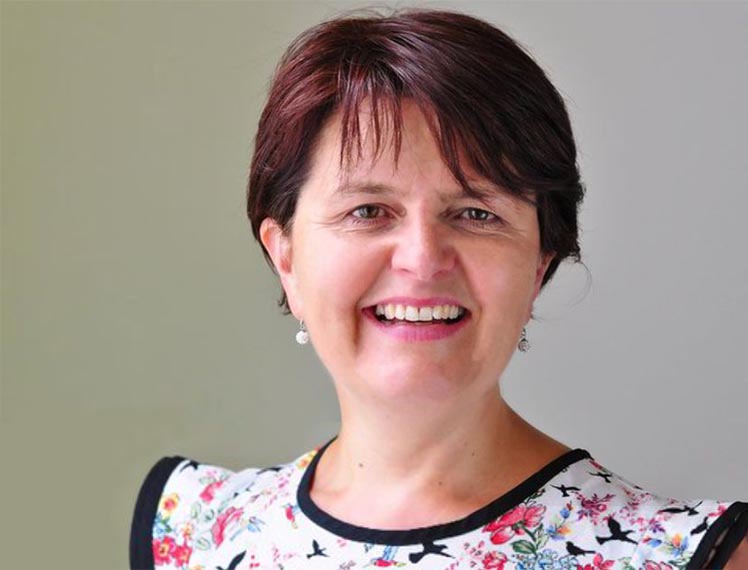Now is the time for T Levels, a bright spark of something new and exciting

In amongst all the challenges of summer exams, reopening and lost learning there has been a bright spark of something new and exciting in the college world this week.
Hundreds of students have started the very first T Levels. Colleges are reporting encouraging numbers of students, but most importantly, this year of all years, excited, motivated students are getting stuck into real life, career-related tasks in Education Childcare, Design, Surveying and Planning and Digital Production, Design and Development.
All credit should go to the colleges and staff who, despite lockdown, have been determined that their T Level applicants should get the best experience possible this September.
I am often reminded that the Skills Plan is a 10-year programme of change, but with the first students starting T Levels this week it is a good opportunity to take stock.
Shortly after the publication of the Skills Plan in 2016 AoC held a conference to explore the implications of what was then referred to as the ‘Route based’ system.
We were excited about the emphasis on technical skills for the 21st century and the role colleges could play, but like others we had questions about shifting attitudes towards technical education.
Having only one awarding organisation or consortia per qualification, a qualification review of the wider landscape, funding and the extended work placements were all areas of concern.
So how do T levels in 2020 measure up?
Since the confirmation that the Skills Plan would endorse all the recommendations of the Report of the Independent Panel on Technical Education chaired by Lord Sainsbury, T Levels have come a long way (at that stage they were still unnamed!).
Based on evidence gathered from other successful technical education or skills systems the 15 routes would bring together occupations with shared training requirements. There would also be the option for students who were not quite ready to start a route at 16 to undertake up to a year of ‘tailored and flexible support based on their prior attainment and aspirations’.
There would also be progression opportunities at Levels 4 and 5 in the same routes of sectors. The Skills Plan also emphasised how employers needed to be central to the technical education agenda and that the system needed to be easily understood by all key stakeholders, not least students and parents/carers.
T levels: Next steps for providers
We now know that there will be 24 T levels in 11 routes. They will be introduced gradually between 2020 and 2023 with increasing numbers of providers delivering them each year.
We know which providers will be delivering which of the 2020, 2021 and 2022 T levels and which awarding organisation will be providing the individual T Level specification based on content designed by employer panels.
Content and draft specifications were discussed with colleges – an experience which often raised questions but helped ensure the final products landed well. Funding and accountability have been clarified.
T Levels have UCAS points allowing for progression to Higher Education where appropriate.
There is a T Level Professional Development offer to support CPD for different staff roles – this is a whole college change programme.
From the college perspective a key element of the T Level is the move from two-week study programme to 315 hours or 45-day work experience. Initially this caused a deep intake of breath (apart from Education Childcare teams where the cry was, ‘This is not enough!’).
However, the ongoing Capacity and Delivery Fund (CDF) has done much to allay fears, build on existing experience and further develop links with employers. The Education Childcare placement has been increased to meet industry requirements.
Of course, there is concern right now; due to the pandemic, businesses are having to make difficult decisions about their existing workforce and don’t necessarily wish to have additional people on site. But in the longer term students consider the ‘industry placement’ a usp of the programme as it gives them real life experience in the area in which they wish to progress.
Roots into Routes
Roots into Routes is now the Transition Programme though some providers have come up with niftier names such as Transition to T Level and Yet-T. These programmes, based around a framework aimed at preparing students for T Level, are also being launched in a number of colleges this week.
The exciting aspect here is the opportunity to redesign the current study programme to provide the emphasis that is right to meet the needs of students progressing to T level whether they are technical skills, English and maths or pastoral.
Returning to the Skills Plan for a moment, there are some still outstanding questions about the wider landscape. We await further information on the qualification review, higher technical qualifications at levels 4 and 5 are as, if not more, crucial than level 6 progression opportunities.
The term ‘T Levels’ captured the public imagination, but there is still more work to be done to ensure impartial careers information, advice and guidance in years 10 and 11 and to win the hearts and minds of parents/carers.
The Transition Programme would no doubt benefit from the same level of funding as the T level itself for those further away from Level 3 achievement.
We need to review the requirement for GCSE English and maths for students with grade 3s in Transition when on the T level so those same students can take Functional Skills.
A decision on funding for T levels for adults would be welcomed, especially those on the 19+ cusp who may have made false starts and now can’t benefit from this opportunity.
However, it would be churlish to focus on the negative, when so much hard work and collaboration has gone into T Levels from employers, DfE, IfATE, awarding organisations and especially colleges.
Nothing can take away from the magic of seeing happy students and proud staff – you did it, you made T levels reality! Well done!
Catherine Sezen is a Senior Policy Manager at the Association Of Colleges











Responses